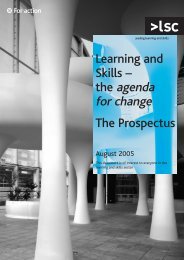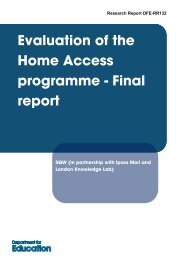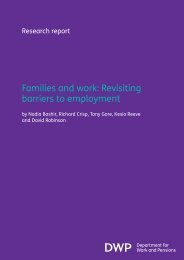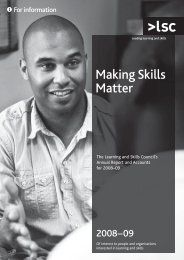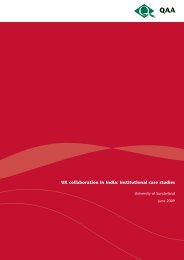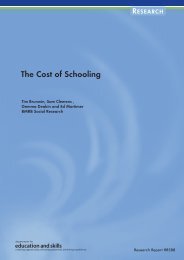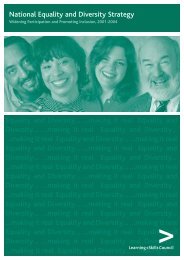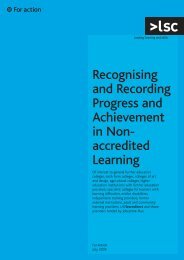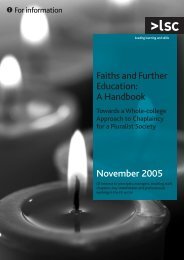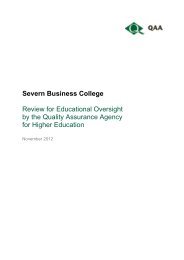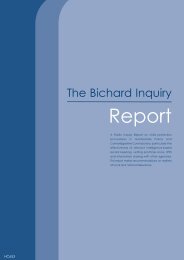Full Text (PDF) - Official Documents
Full Text (PDF) - Official Documents
Full Text (PDF) - Official Documents
Create successful ePaper yourself
Turn your PDF publications into a flip-book with our unique Google optimized e-Paper software.
Managing the expansion of the Academies Programme Part Three 33<br />
3.6 Our survey also suggests most academies are complying with good practice in<br />
financial governance. For example:<br />
• Around half of academies have an Audit Committee, compared to just over a third<br />
in 2010.<br />
• Over 99 per cent of academies have either Internal Audit functions or Responsible<br />
Officers to provide financial assurance. Virtually no Responsible Officers are<br />
subject to conflicts of roles through chairing the Governing Body or Board of<br />
Trustees (16 per cent in 2010).<br />
3.7 The proportion of academy Finance Directors with recognised accountancy<br />
qualifications has reduced since 2010, from 61 per cent 6 to 34 per cent. The Department<br />
no longer recommends that all academies should have qualified Finance Directors.<br />
However, its revised guidance requires trustees and managers to have the skills,<br />
knowledge and experience to run the academy trust.<br />
3.8 The EFA and its predecessor have undertaken a few formal investigations into<br />
concerns over governance or financial management in academies, mainly in response<br />
to whistle-blowers or other local intelligence. Academy governing bodies may also<br />
commission similar investigations. On 30 March 2012, the Chief Executive of the<br />
Priory Federation of Academies Trust resigned; the EFA published a report of its<br />
investigation into the trust on 27 April 2012. The YPLA had previously validated the<br />
trust’s self-assessment as outstanding. A further investigation is currently under way<br />
at Quintin Kynaston Community Academy.<br />
3.9 In addition to their individual impact at academy level, failures in financial control<br />
and governance create risks of wider reputational damage to the Programme. In<br />
September 2012, the EFA issued new guidance clarifying its expectations of academy<br />
trust accounting officers and governing bodies.<br />
Academies’ financial position and cost base<br />
3.10 In 2009/10, around 12 per cent of academies reported cumulative deficits, falling<br />
to around 6 per cent in 2010/11 – a similar proportion to the maintained sector. This<br />
reduction reflects changes in the profile of schools becoming academies during that<br />
period, with 95 per cent of converters having a surplus on conversion.<br />
3.11 Schools can convert with deficits, although they must have an agreed recovery<br />
plan and the ability to pay back the deficit within two to three years. Some academies<br />
have required financial support to address pressures arising after they became<br />
academies. In 2011-12, the Young People’s Learning Agency gave a total of £15 million<br />
in financial support to 110 academies, an increase from £7 million in 2010-11.<br />
6 Comptroller and Auditor General, The Academies Programme, Session 2010-11, HC 288, National Audit Office,<br />
September 2010, page 36.



